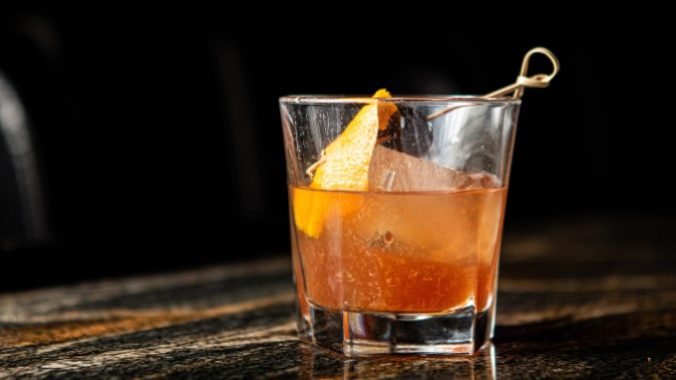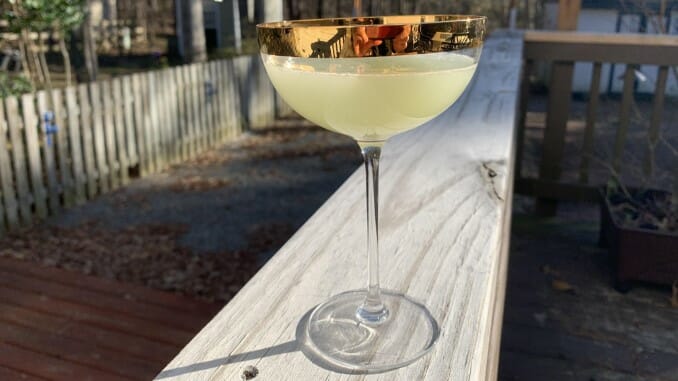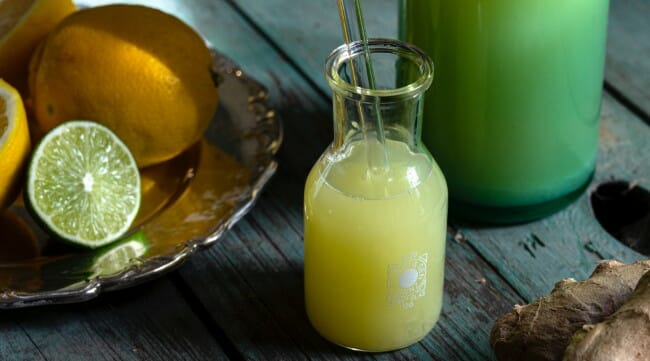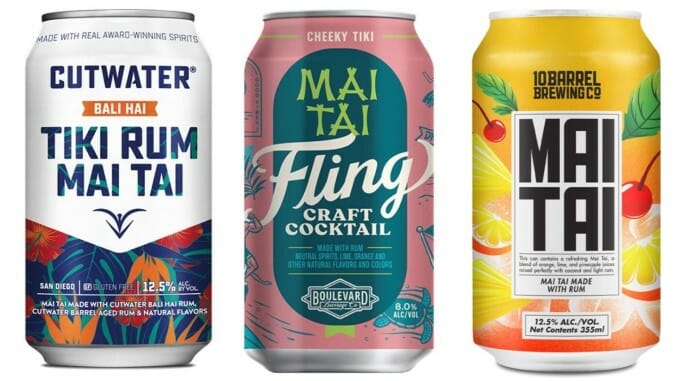Get Off Your Lazy Ass and Make Yourself a Decent Cocktail
Photos via Jim Vorel, Unsplash, Asa Palsson, Paige Ledford
One of the prevailing challenges in the American cocktail scene is one of those problems a drinks writer is perhaps least likely to write about. We’re not about to argue that drinkers’ tastes are so poor they can’t appreciate a good cocktail–many adventurous drinkers are willing to branch out into the bold and exciting flavors that have fueled the mixology revolution of the last couple decades. The problem ultimately isn’t that folks don’t value the experience of drinking good cocktails … it’s that all too many drinkers are unwilling to take the next step and make those cocktails for themselves. Whether it’s because they think cocktails are too complex, or because they think it’s too much work, or because they’ve been increasingly infantilized by poorly made “ready to drink” (RTD) products proliferating on store shelves, the biggest problem in cocktail culture these days is often that people can’t be bothered to make a real one in the first place.
At a time when spirits are hotter than ever on the American market, it’s just sort of funny to see such an aversion to home mixology from many drinkers. It should go without saying that this obviously does not apply to everyone, as there are clearly many passionate home bartenders and cocktail enthusiasts mixing up thousands and thousands of libations on a daily basis. But I have personally met all too many drinkers who love to visit a craft cocktail bar and plunk down their $15 for a Manhattan … but would never make one for themselves at home. The ongoing surge of RTD products points toward the existence of this subset of the market–if these drinkers preferred to mix their own basic cocktails, then sales of canned old fashioneds, manhattans or margaritas wouldn’t be skyrocketing in 2022-2023. The boom of RTD indicates a willingness to accept convenience–or the perception of convenience–over quality.
This is a deeper issue, though, than simply characterizing drinkers as lazy–apologies for the confrontational headline, but it got your attention, right? We’ll dive more into the RTD shelf shortly, but first let’s examine some of the other reasons why consumers seem to be reticent to make their own cocktails.
The Mystique of the Craft Cocktail
In the boom of American cocktail bars and serious cocktail culture that has unfolded from the 2000s onward, the tastes of American drinkers have matured in appreciable ways. Lost classics of an earlier era have been unearthed and repopularized, while modern innovation has driven the creation of numerous now-classic cocktails. The worst, most saccharine faux cocktails (Harvey Wallbanger, etc.) of the 1970s-1990s have been largely discarded, relegated to dive bars or ironic happy hours. In general, it’s a good time to be a person who appreciates spirits, and it’s not hard to find a great drink.
The flip side of the increased esteem we’ve afforded to cocktail culture, bartenders and “mixologists,” however, is that it puts the people creating our drinks onto something of a pedestal for many consumers. The more we characterize their work as artisanal and brilliant, the more it implies that what they do behind the bar can’t be done to a reasonable capacity by an average person in their kitchen. This simply isn’t true, but this perception is one of the things that holds back the average consumer from making their own cocktails: They believe it’s a special skill and are anxious about their own lack of expertise. They see the mixing of a Manhattan–not to mention cocktails that are significantly more complex–as something to be “left to the professionals.”
Suffice to say, I don’t like this outlook one bit. It is absolutely true that a professional bartender can probably make a better overall cocktail than you or me, knowing tricks of the trade as they do, but it’s also true that the average consumer can make a drink just as delicious, or so close as to really make no difference. Do we let the fact that we can’t always make restaurant-worthy food stop us from cooking at home? Of course not; so why should the same thing stop us from making drinks? It’s this aura of cocktails that needs to be demystified for many, the idea that they’re specialized potions that need some kind of alchemical degree to create. The recipes are all available online, it’s just a matter of making an effort. You screwed a cocktail up? There’s no reason you can’t simply try again. You’ll probably be inventing your own drinks in no time.

Tell me you don’t want to enjoy a handmade cocktail in your own backyard.
Likewise, some consumers look at cocktail recipes and simply shrug in apathy because they think the effort of acquiring ingredients will be too time consuming, expensive or difficult to make home cocktails practical. And yet, these are so often the same people who are fine with spending $15 on that Manhattan riff, provided it comes from a hotel bar. Suffice to say, expense is a relative idea, and yes, getting into making home cocktails does require a certain investment in things such as spirits, bitters, juices, glassware, a drink shaker/tin, etc. But many of those products are infinitely reusable, or will last you for a long, long time. Is it pricey to pick up, say, a bottle of Green Chartreuse? Yeah, but you’ll probably be making Last Word cocktails with it for a year or two once you do. Someone who is very new to mixing drinks, meanwhile, can start in a specific corner of the cocktail world to simplify this process, collecting only ingredients that work in say, whiskey-based cocktails. More advanced genres such as tiki cocktails, which frequently require many ingredients, represent a level enthusiasts might explore later on.
Where to get those ingredients, tools and gadgets? Well, they’ve never been more widely available, and there’s never been a better time to explore the home cocktail market. There are so many companies specializing in providing every conceivable style of bitters, cocktail syrups or juices that we’re typically presented with an embarrassment of options.
Finally, I think it bears mentioning that spirits writers–myself included–have also played a role in mystifying cocktails and putting them on a pedestal, making average consumers arguably less likely to mix them. How many times have you read a recipe online, insisting that you must have fresh-squeezed lime juice to make any given drink? This kind of language is rampant, and I hate the argument it seems to make: That if you’re going to make a drink, it has to be completely perfect and optimal.
-

-

-

-

-

-

-

-

-

-

-

-

-

-

-

-

-

-

-

-

-

-

-

-

-

-

-

-

-

-

-

-

-

-

-

-

-

-

-

-










































